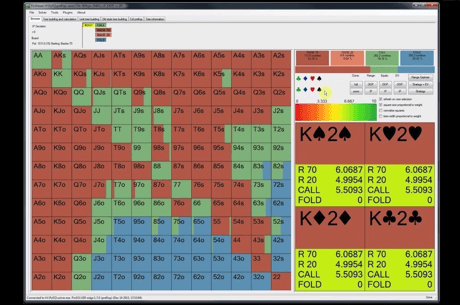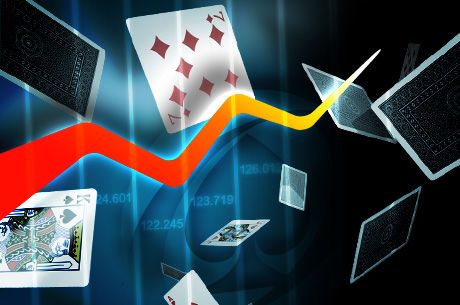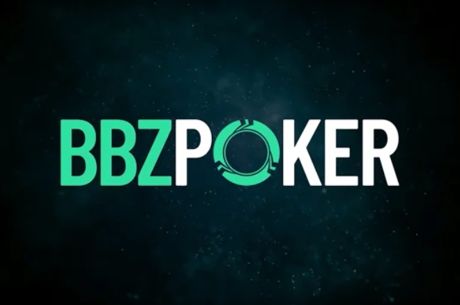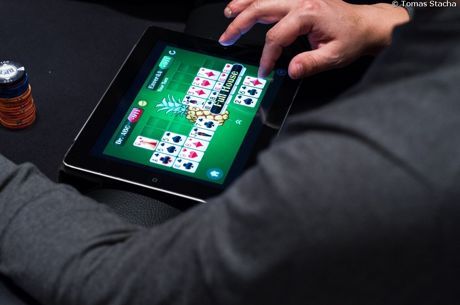Alec Torelli Asks: "Did Solvers Ruin Poker?"

Table Of Contents
The following article is an unpaid op-ed contribution by poker pro Alec Torelli of . His thoughts and opinions do not necessarily reflect those of PokerNews and its affiliates.
I first began playing no-limit Texas hold’em in 2003 in home games with friends. I was still in high school, and social media, blogs, training videos, and solvers didn’t exist. The best (only?) resource on how to learn poker was books. Eager to hold my own against my friends, I picked up a copy of Super System, and the simple exploits of continuation-betting when I was the preflop raiser, playing draws aggressively, and occasionally limping from early position to trap with big pairs was enough to win their lunch money.
I believe it was in Poker Wisdom of a Champion that I read an excerpt where Doyle Brunson shared one of his hustles. He’d bet naysayers that pocket deuces were a better hand than ace-king. Few believed him, so they’d simply bet even money and deal all five cards. My favorite part of the story was that Doyle learned this ‘secret’ by painstakingly dealing out thousands of scenarios by hand, and documenting who won.
Today, almost every poker amateur knows a pair is a slight favorite over two high cards. We’re reminded of this fact every time we watch poker on television, where a computer instantly computes the odds and reveals the percentages in real-time.
The great game of poker has changed exponentially since I first began playing it. When I was coming up, heads-up displays (HUDs), (which give you real-time stats of your opponent’s online), equity calculators (which tell you the odds of any two hands or ranges), as well as solvers (which tell you the optimal play in any situation), did not exist. The lack of information available meant that those who had the best intuition for the game were the best players.
Moreover, the one way to hone one’s instincts was to put in thousands of hours of sweat equity into the game itself. Discovering the optimal line required being in a spot many times, making mistakes, and then thinking through the hand. Studying involved relaying hands to other respected players and getting their input.
What are solvers? Learn about them here.
Poker's Enhanced Evolution
Ironically, this slow, ardent process gatekept those at the top. Since was no substitute for experience, becoming a competent poker player was extremely challenging, but the lack of technology meant the game evolved very slowly. Once you reached the top, you stayed there.
With nobody having definitive knowledge of the correct (game theory optimal) strategy, everyone was aiming to exploit their competition. One had to play many hours with their opponent to understand their sub-optimal betting patterns, find leaks, and look for ways to outplay them. Intuition played a key role in the game. As Phil Hellmuth astutely notes, ‘poker is a game of people, played with cards.’ Some argue this is the true essence of poker and where the game is best played.
"In the modern era, poker has become a more methodical, technical game. Today the best players feel more like mathematicians."
It's been fascinating to watch poker evolve, thanks largely to technology. When I first began playing, the best players were artists. In the modern era, poker has become a more methodical, technical game. Today the best players feel more like mathematicians.
Is poker a better game when the correct strategy (Nash equilibrium) solution isn’t known, and one must rely on their wits and in-game feel to determine the best play? Or perhaps solvers have improved poker, where those who study and memorize the correct solutions, and know-how to apply them have the biggest edge.
I remember having a conversation with a friend when PokerTracker, the now-famous poker tracking software which reveals the exact frequencies of your opponent’s play in any given situation, first came out. We agreed it would change the game of online poker forever, and force players to take a more mathematical approach. Definitively knowing the frequencies of your opponent's raises, calls and bets allow one to use math to create counter strategies to their play. For example, if one observes their opponent folds the turn when facing a double-barrel more than 50% of the time, you can simply make a pot-sized bet with any two cards and be guaranteed to show a profit.
I witnessed as exploits shifted from those with an intuitive understanding of the game to those who found mathematical imbalances in their opponent's betting lines. Around that time poker equity calculators came onto the market, like PokerStove, which could compute the equity (or odds) of any two hands or ranges against one another.
This radically changed the game as well, as one no longer had to use intuition (gained through experience) to determine if the situation was profitable, but rather they could learn the spots without ever sitting down at the table, just by running them through an equity calculator.
Free to Play Slots in the US
The Rise of Artificial Intelligence
Another breakthrough happened when AI became good enough to predict the correct betting lines in any given situation.
I was one of the first in the world to test these ‘solvers’ when I flew to Malta to play against PokerSnowie’s beta version. The solver was easily exploitable as it couldn’t differentiate between any bet size over 2x pot, allowing for the easy adjustment of going all in whenever one had a premium hand, exploiting Snowies tendency to miscalculate the bet size and call too frequently.
I had recently watched a talk about Moore’s Law, which loosely states that the processing power doubles every two years and therefore that we can expect the speed and capability of our computers to double every couple of years, despite paying less for them. With respect to AI and poker, I could see that the exponential pace of technology would improve solvers to the point where they could outplay humans in a short matter of time. The writing was on the wall.

Several years later, an advanced poker program named PioSolver was unleashed onto the market. It could play any situation perfectly in no-limit Hold’em, albeit being limited to heads-up pots.
This breakthrough radically changed the poker landscape once again, further pushing the importance of math on the game. With equity calculators, one still had to painstakingly put their opponents on a range, input that into the calculator, look at the equity, and then use critical thinking to determine the best betting line to take.
It often wasn’t obvious, and there would be widespread debate amongst elite players as to what the best play was. For example, if you have 30% equity against your opponent and are getting 2:1 odds, one can argue for a call. But perhaps a shove is better because they will fold a significant part of the range they are betting with. If you do call, what rivers should you call down on? What do you bluff shove?
With a solver, this information is made readily available to anyone who inputs the data. There was less debating and more calculating and memorizing.
Each one of these technological breakthroughs has served to limit the significance of experience in poker. It’s also allowed people to prove the correct betting lines in any given situation, removing doubt or debate as to what the correct play is.
The advent of solvers has come with another set of challenges, the use of real-time assistance (RTA). Players can now input the situation into a solver and play perfect poker in real-time. Poker sites have attempted to combat this, and some have even gone so far as to record the computer screen of their players while they play, but the cheaters are always one step ahead. What’s to stop them from having a friend next to them on a second computer who inputs the hands and relays the information? See the 8:00 mark of this video for a shocking look at what goes on.
What is Ghosting? Multi-Accounting? Collusion? Online Poker Cheating Explained
Have Solvers Improved or Worsened Poker?
Such a form of cheating would be nearly impossible to detect, and the fact that so much is at stake means it's undoubtedly happening in the online poker world.
Sure, there are still some challenges to playing poker at an elite level that go beyond the technical aspect of the game, such as emotional control, stamina, bankroll management, and the like. There’s even knowing when and how to deviate from what the solvers advocate, which requires critical thinking and an awareness of one’s opponent and the metagame.
"With respect to online poker, I believe its clear solvers have made poker worse."
The question remains, have solvers improved or worsened poker? Does having people attempt to memorize and replicate an AI reduce poker to a standardized test where participants aim to memorize the answers instead of an art form where instinct, critical thinking, and experience prevail? Or does the advent of solvers allow players to understand the game on a deeper level, thereby adding another element of skill?
With respect to online poker, I believe its clear solvers have made poker worse. The prevalence of RTA and the uncertainty that many feel with respect to playing online will have a lasting impact on the sustainability of the ecosystem. I know many players who simply won’t touch online poker because they feel it’s too risky.
Second, the lack of reads, tells and ability to use intuition means it’s very difficult to deviate from the game theory optimal play, making the importance of solvers so great that one is forced to play by the book. I believe this creates a more stagnant and boring game where some of the artistry is lost.
In live poker, solvers play a less significant role because one gains substantial information about their opponent by observing them in real-time. The way they act gives one clues into the strength or weakness of their hand. This affects the range they can have, which affects your equity, which ultimately dictates the optimal strategy. Even in the current live games, I play at the end of the day big decisions often come down to big, intuitive real-time reads. It’s only when I have no information that I resort to a game-theoretic approach. Personally, I love the nuanced exploitative aspect of live poker, and it’s what keeps the game exciting.
In many ways, games are more fun when there’s no perfect strategy available. Chess Grandmaster Bobby Fischer lamented over the same thing, long before a machine could beat a human. He invented a variant he believed was a purer form of chess called ‘Fischer’s Chess’ where pieces were randomly distributed on the board, and then the game would begin. He believed this favored the chess purist with a more profound understanding of the game, rather than someone who merely studied chess theory.
This raw talent can keep the game pure as skill can only be attained through the maximum amount of time spent dedicated to doing the craft, whereas with solvers, the fastest strategy to improving is to spend more time studying than playing. I see his point.

Lessons from Experience
During Covid, I played quite a bit of online poker. I sat in the biggest cash games available and always love the challenge of competing against the best. I saw new betting lines (such as people betting 1/10th the pot), and much more over-betting to name a few.
In analyzing the hands afterward, I could tell players weighted their decisions heavily based on blockers. I’ve been forced to adapt through the years as the game of poker has changed. The strategies that worked for me in 2005 didn’t work in 2010, and the strategies I used to play the Big Game in Macau would be sub-optimal today. In some ways, being forced to adapt rapidly to the changes in-game has kept poker more fun, as I’m always learning something new. Learning more than anything is what keeps the game fun. One could argue that solvers have allowed the most room for learning, and that’s a good thing. Perhaps we needed technology to help evolve the game to force us to continually be adopting new strategies and keep the game fresh.
"Poker has largely become a math problem whereas, in the past, nobody knew the math, so it was more of a human problem."
Piotrek Lopusiewicz, the programmer behind PioSOLVER, argues that the latest A.I. tools (solvers) are merely an extension of a longer trend in the technological disruption of poker. Even before solvers, top online poker pros collected data through PokerTracker and analyzed it to spot inefficiencies. In that way, solvers are merely the next logical evolution of technologies attempt to disrupt poker.
One could argue that both HUDs and Solvers have contributed to the demise of online poker, and it’s a better game without them. Online poker was already tainted with data collecting because problem-solving became math, not creativity. Solvers were just the nail in the coffin.
Poker has largely become a math problem whereas, in the past, nobody knew the math, so it was more of a human problem. Lopusiewicz may argue that solvers haven’t changed poker but rather revealed its essence. In the modern poker era, players are forced to learn the math and theory component, which is best done by studying solvers. Love them or not, one thing is clear, if you want to reach the top in today’s poker environment, you can’t ignore them.
Alec Torelli has been playing high-stakes poker professionally since 2006. With over $1,500,000 in tournament winnings and millions more in both live and online cash games, Alec is one of the most respected poker players in the industry today. He has been featured on ESPN, CBS Sports, Travel Channel, Fox Sports, Cigar Aficionado, PokerNews, and many more.
In 2015, Alec founded to teach poker players how to improve their game, move up in limits, and achieve their poker goals. Since then, Alec has coached nearly a hundred players both in person and virtually, and thousands more have taken his programs to take their game to the next level.









